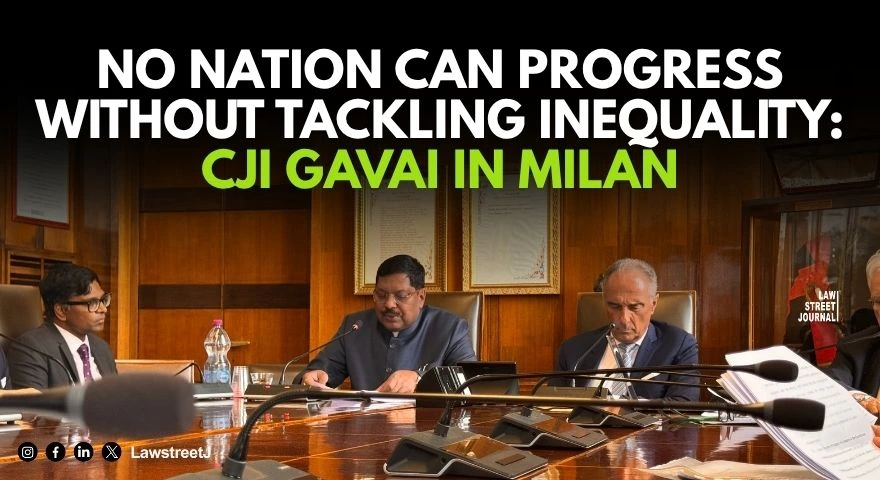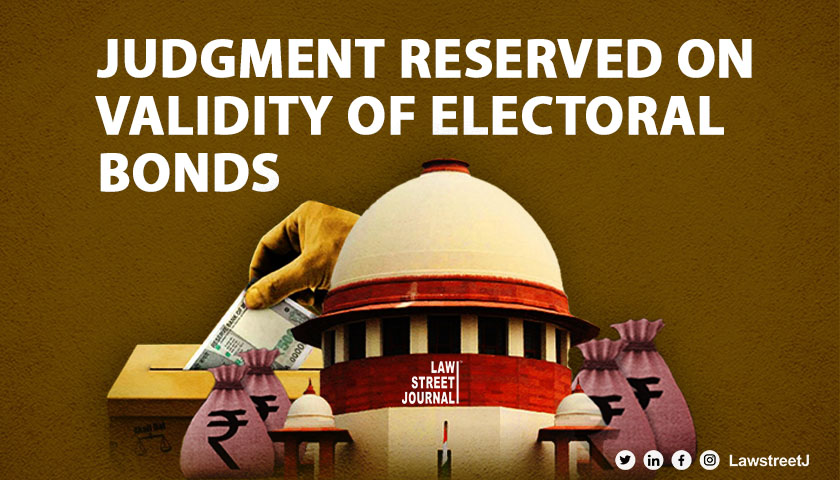NEW DELHI: Chief Justice of India B R Gavai has said without addressing the structural inequalities that marginalise large sections of society, no nation can claim to be truly progressive or democratic as socio-economic justice, in other words, is a practical necessity for achieving long-term stability, social cohesion, and sustainable development.
He said journey of the Indian Constitution over the past 75 years in delivering socio-economic justice is a story of great ambition and important successes.
"Land and agrarian reforms played a critical role in dismantling feudal structures, breaking the stranglehold of entrenched hierarchies, and redistributing access to land and livelihood. For countless landless and marginalized individuals, especially from oppressed castes and communities, these reforms represented the first real opportunity to secure economic independence and dignity," he said.
The CJI was delivering a speech on the topic, “Role of the Constitution in Delivering Socio-Economic Justice” in Milan.
He said affirmative action policies in education, which sought to correct historical injustices and ensure representation of Scheduled Castes, Scheduled Tribes, and socially and educationally backward classes, have been a concrete expression of the Constitution's commitment to substantive equality and socio-economic justice.
"It is because of this constitutional vision of inclusion and transformation that I am standing before you as the Chief Justice of India. Coming from a historically marginalised background, I am a product of the very constitutional ideals that sought to democratise opportunity and dismantle the barriers of caste and exclusion," he said.
The CJI noted the Constitution has given us the vision, the tools, and the moral guidance. It has shown us that law can indeed be a tool for social change, a force for empowerment, and a protector of the vulnerable.
Throwing light on the list of judicial and legislative measures undertaken since independence, the CJI said, "We must understand the imperative of socio-economic justice. It is not merely a matter of redistribution or welfare. It is about enabling every individual to live with dignity, to realise their full human potential, and to participate as equals in the social, economic, and political life of the country".
He said the Indian Constitution was adopted on January 26, 1950, as not just a political document for governance, but as a promise to society, a revolutionary statement, and a ray of hope for a country coming out of long years of colonial rule, suffering from poverty, inequality, and social divisions.
"It was a promise of a new beginning where social and economic justice would be the main goal of our country. At its core, the Indian Constitution upholds the ideals of freedom and equality for all," he said.
Justice Gavai pointed out the framing of the Indian Constitution set a profound precedent for democratic governance in the post-colonial world. India’s Constitution became a model for other emerging nations striving to build inclusive and participatory governance structures.
By explicitly providing constitutional backing for affirmative action policies, Parliament asserted its commitment to social justice and the equitable distribution of opportunities in education and public life. In effect, Article 15(4) gave effect to the socio-economic justice enshrined in Article 45, he said.
Citing the landmark judgment in Kesavananda Bharati Vs State of Kerala in 1973, delivered by the largest-ever bench of 13 judges of the Supreme Court, the court held that while Parliament has wide powers to amend the Constitution, it cannot alter the “basic structure” of the Constitution, Justice Gavai pointed out.
The CJI highlighted Indian Parliament has enacted a wide range of legislations aimed at advancing socio-economic justice. These include laws prohibiting socially oppressive and discriminatory practices, such as the Bonded Labour System (Abolition) Act, the Child Labour (Prohibition and Regulation) Act, the Dowry Prohibition Act, and the Scheduled Castes and the Scheduled Tribes (Prevention of Atrocities) Act.
Each of these statutes represents a conscious effort to address historical injustices and structural inequalities, and to build a legal framework that upholds the dignity and rights of all citizens, he said.
From the late 1970s, the Supreme Court significantly broadened the interpretation of the “right to life” under Article 21 of the Constitution by drawing upon the Directive Principles of State Policy. The court held that the right to life is not merely about physical survival, but includes the right to live with dignity. It expanded this understanding to include a wide array of socio-economic rights, often deriving support from the Directive Principles.
The court recognised that the right to life under Article 21 meant little without the basic conditions that make life worth living, he said.








![Supreme Court upholds abrogation of Article 370, mandates elections in J&K by September 2024 [Read Judgment]](/secure/uploads/2023/12/lj_9189_Historic_verdict.jpg)
![Maratha reservation: Supreme Court will hear curative plea on Jan 24, 2024 [Read Order]](/secure/uploads/2023/12/lj_6671_Maratha_quota_row.jpg)
![Supreme Court Collegium approves new Chief Justices for five key High Courts in India [Read Recommendations]](/secure/uploads/2023/12/lj_8000_380d1135-6f3a-4988-a00a-4d5cd5901815.jpg)




